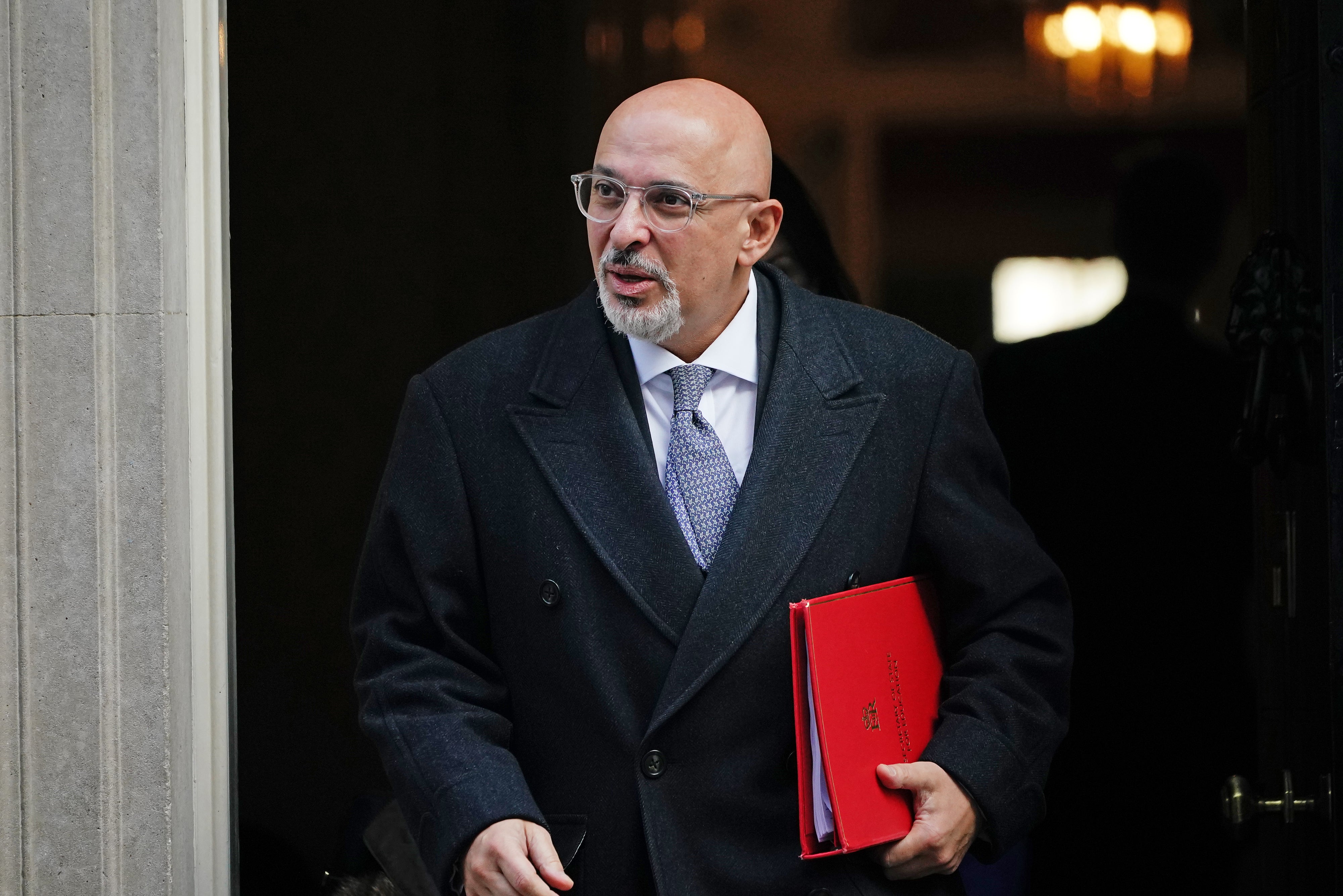Children need to form their own views on political issues – Education Secretary
Nadhim Zahawi said schools should be encouraging young people to ‘pin their colours to a political mast’.

Your support helps us to tell the story
From reproductive rights to climate change to Big Tech, The Independent is on the ground when the story is developing. Whether it's investigating the financials of Elon Musk's pro-Trump PAC or producing our latest documentary, 'The A Word', which shines a light on the American women fighting for reproductive rights, we know how important it is to parse out the facts from the messaging.
At such a critical moment in US history, we need reporters on the ground. Your donation allows us to keep sending journalists to speak to both sides of the story.
The Independent is trusted by Americans across the entire political spectrum. And unlike many other quality news outlets, we choose not to lock Americans out of our reporting and analysis with paywalls. We believe quality journalism should be available to everyone, paid for by those who can afford it.
Your support makes all the difference.Children need to form their own views and not be told by teachers about what they should think on political issues, the Education Secretary has said.
Nadhim Zahawi is issuing guidance which he said will clarify the requirement for teachers “to make a balanced presentation of opposing views on political issues” so that the complexity of the matters is understood.
He said parents and carers “need to be able to trust schools to be impartial”, adding: “It means education not indoctrination.”
It is not for teachers to tell people what they should think on political issues or how they should vote
Writing in The Sun newspaper, Mr Zahawi said: “Brilliant teachers explain sensitive issues that attract opposing views in a balanced way.
“It is a difficult job and I commend them for their work.
“But no school should be encouraging young people to pin their colours to a political mast.
“Children need to form their own views as they learn to respect those of others.”
He added: “The new guidance I will issue clarifies the requirement for teachers to make a balanced presentation of opposing views on political issues, so that the complexity of many of these important questions is understood.
“It is not for teachers to tell people what they should think on political issues or how they should vote.”
The Department for Education said more details on the guidance will be released next week.
Last October, the Government published its response to a report from the Education Select Committee which claimed that terminology such as “white privilege” may have contributed towards a “systemic neglect” of white working-class pupils.
The Conservative-dominated committee suggested that white working-class pupils have been “let down” for decades by England’s education system – and “divisive” language can make the situation worse.
The report, published last June, suggested that schools should consider whether the promotion of such “politically controversial” terminology is consistent with their duties under the Equality Act 2010.
In its response to the report, the Government said schools “must not promote partisan political views” and they should take steps to ensure “the balanced treatment” of political issues.
It adds: “Schools should not teach contested theories and opinions as fact, and this includes contested views about ‘white privilege’.
“Political issues relating to racial and social justice can be taught about in a balanced and factual manner, just as pupils are often taught about a range of different views on other topics.”
At the time, the Government said these were “important principles to uphold” and it had “begun working with the sector to develop guidance which will help schools understand and meet their duties in this area”.
It added: “This guidance will support schools to teach about complex political issues, in line with their legal duties on political impartiality, covering factors including age-appropriateness and the use of external agencies.”